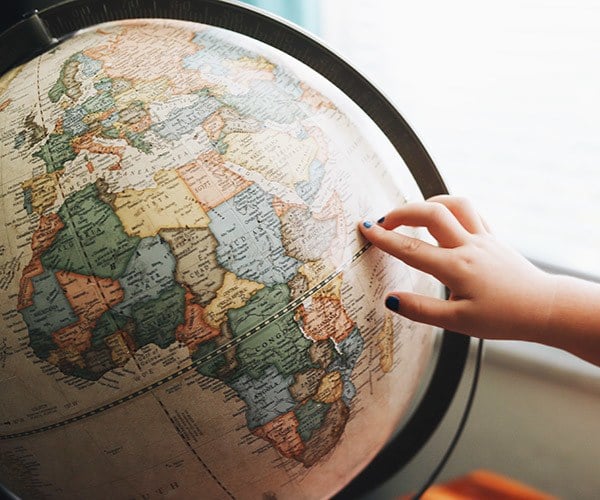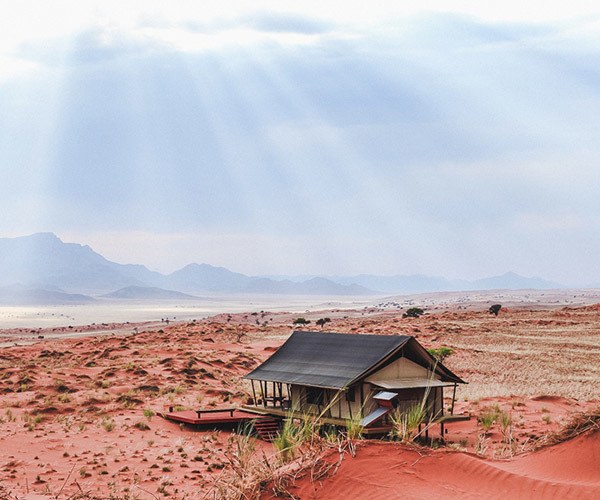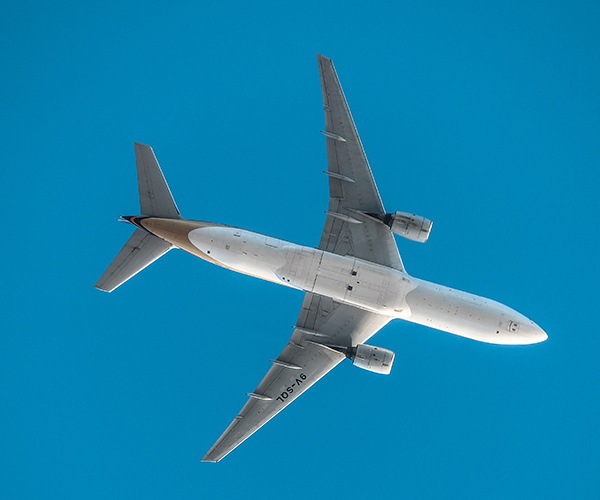Responsible travel: 10 tips to reduce and offset your carbon footprint
I am passionate about both exploring AND protecting our planet. I revere the Earth in an authentic way that honours the gifts nature bestows upon us. Nature has the power to heal and restore human beings. Or, as Shakespeare so poetically put it, “Nature has music for those who listen.” This deep respect for the planet in many ways motivates me to create immersive experiences in the last remaining wild corners of the world.
 Travel, however, presents an interesting ethical dilemma. How can we enjoy the raw call of the wild while also preserving the planet’s resources? Given the substantial environmental impact of flying, driving, and using heavy vehicles to go off-road – how can we act in ways that minimize our carbon footprint, yet also enjoy the experience of ‘rewilding?’
These 10 tips will help you learn how to travel in a more carbon neutral manner. Or, at the very least, you will learn behaviours to offset the carbon footprint imposed by global travel.
Travel, however, presents an interesting ethical dilemma. How can we enjoy the raw call of the wild while also preserving the planet’s resources? Given the substantial environmental impact of flying, driving, and using heavy vehicles to go off-road – how can we act in ways that minimize our carbon footprint, yet also enjoy the experience of ‘rewilding?’
These 10 tips will help you learn how to travel in a more carbon neutral manner. Or, at the very least, you will learn behaviours to offset the carbon footprint imposed by global travel.
 1. Stay at a lodge which is completely off the grid
Many lodges in remote locations had to create their own infrastructure in order to minimize impact on the natural habitat and ensure delivery of basic services. Before travelling, research the lodges using solar power banks, boreholes or rainwater tanks, vegetable gardens, composting toilets, minimal waste, locally manufactured furniture, etc. Some lodges have created completely self-sufficient villages supporting the needs of their visitors, and these projects are incredibly inspiring as well as having less environmental impact than even the typical family home.
1. Stay at a lodge which is completely off the grid
Many lodges in remote locations had to create their own infrastructure in order to minimize impact on the natural habitat and ensure delivery of basic services. Before travelling, research the lodges using solar power banks, boreholes or rainwater tanks, vegetable gardens, composting toilets, minimal waste, locally manufactured furniture, etc. Some lodges have created completely self-sufficient villages supporting the needs of their visitors, and these projects are incredibly inspiring as well as having less environmental impact than even the typical family home.
 2. Stay at a lodge using electric boats and off-road vehicles
At a recent We Are Africa conference, a clever group of engineers announced that they are successfully running electric 4×4 vehicles and boats on safaris in Africa. These vehicles are recharged at a battery station run on solar energy. A few savvy lodges have adopted the practice of using electric vehicles, greatly minimizing the impact of traditional diesel machinery. Support these lodges so that other African safari camps are encouraged to do the same.
2. Stay at a lodge using electric boats and off-road vehicles
At a recent We Are Africa conference, a clever group of engineers announced that they are successfully running electric 4×4 vehicles and boats on safaris in Africa. These vehicles are recharged at a battery station run on solar energy. A few savvy lodges have adopted the practice of using electric vehicles, greatly minimizing the impact of traditional diesel machinery. Support these lodges so that other African safari camps are encouraged to do the same.
 3. Plant trees to partly offset the carbon impact of flying
Global flights are a significant contributor to carbon emissions. Even as a travel designer, I highly recommend that people consider travelling close to home as much as possible and minimizing global travel to once per year or once every two years. Imagine the reduction in carbon emissions if we saw global travel as an extravagant treat, no matter what our budget?
For the flights you do take, plant as many trees as you can. If you have a garden, plant and nurture small trees. There are also tree planting events offered worldwide where individuals and families go to dig in the ground and help with reforestation. The trees are our planet’s lungs, absorbing carbon and restoring the quality of the air. Planting will go a long way to restoring the balance.
3. Plant trees to partly offset the carbon impact of flying
Global flights are a significant contributor to carbon emissions. Even as a travel designer, I highly recommend that people consider travelling close to home as much as possible and minimizing global travel to once per year or once every two years. Imagine the reduction in carbon emissions if we saw global travel as an extravagant treat, no matter what our budget?
For the flights you do take, plant as many trees as you can. If you have a garden, plant and nurture small trees. There are also tree planting events offered worldwide where individuals and families go to dig in the ground and help with reforestation. The trees are our planet’s lungs, absorbing carbon and restoring the quality of the air. Planting will go a long way to restoring the balance.
 4. Travel with a plastic-free kit
Plastic pollution is a major problem in the modern era. In the context of travel, plastic is everywhere. For every plane journey, each of hundreds of clients uses several plastic cups, straws, bottles, etc. Plastic use on airplanes is existing on a shocking scale, but takeaway foods are also a major contributor to plastic polution. Recycling is not sufficient alone, as it takes up a great deal of energy (usually carbon-based) to recycle plastic.
I avoid this plastic overload by travelling with a “plastic-free kit” – a stainless steel water bottle, bamboo takeaway coffee cups, bamboo straws/forks/spoons, and nylon shopping bags that fold into a tiny little pocket. I ask the flight attendants not to give anyone in the family any plastic cups and rather to fill our water bottles with drinking water, and our coffee cups with coffee. The kiddies are only allowed juices from boxes (with no plastic straws) or tins. It works, and even my toddlers understand the negative impact of plastic.
4. Travel with a plastic-free kit
Plastic pollution is a major problem in the modern era. In the context of travel, plastic is everywhere. For every plane journey, each of hundreds of clients uses several plastic cups, straws, bottles, etc. Plastic use on airplanes is existing on a shocking scale, but takeaway foods are also a major contributor to plastic polution. Recycling is not sufficient alone, as it takes up a great deal of energy (usually carbon-based) to recycle plastic.
I avoid this plastic overload by travelling with a “plastic-free kit” – a stainless steel water bottle, bamboo takeaway coffee cups, bamboo straws/forks/spoons, and nylon shopping bags that fold into a tiny little pocket. I ask the flight attendants not to give anyone in the family any plastic cups and rather to fill our water bottles with drinking water, and our coffee cups with coffee. The kiddies are only allowed juices from boxes (with no plastic straws) or tins. It works, and even my toddlers understand the negative impact of plastic.
 5. Travel slowly
Consider travelling slowly on your next journey. Rather than ticking off a list of several countries, why not savor one area thoroughly? It can be so enriching to travel by foot, bike, or even horseback, reducing your carbon footprint and avoiding vehicles on your travels.
5. Travel slowly
Consider travelling slowly on your next journey. Rather than ticking off a list of several countries, why not savor one area thoroughly? It can be so enriching to travel by foot, bike, or even horseback, reducing your carbon footprint and avoiding vehicles on your travels.
 6. Consider alternatives to flying
If possible, consider taking a few extra hours to travel by train instead of airplane for short hops. Or take the bus and soak in the landscape as you travel. You could sail to your next destination, wind on your face and salt in your hair. These alternatives make the journey part of the adventure – what could be better than that?
6. Consider alternatives to flying
If possible, consider taking a few extra hours to travel by train instead of airplane for short hops. Or take the bus and soak in the landscape as you travel. You could sail to your next destination, wind on your face and salt in your hair. These alternatives make the journey part of the adventure – what could be better than that?
 7. If you need to fly, take a direct flight
Airplanes emit the most carbon on take-off and landing. If you can take the most direct route possible on your next flight, you will be supporting the use of relatively less fuel (and the consequent carbon emissions) which would be used for multiple take-offs and landings.
7. If you need to fly, take a direct flight
Airplanes emit the most carbon on take-off and landing. If you can take the most direct route possible on your next flight, you will be supporting the use of relatively less fuel (and the consequent carbon emissions) which would be used for multiple take-offs and landings.
 8. Pack as light as possible
Heavy luggage requires more energy to carry, and therefore more fuel. By packing light, you support the airplane lifting off and flying with less energy consumption and consequent carbon emissions.
8. Pack as light as possible
Heavy luggage requires more energy to carry, and therefore more fuel. By packing light, you support the airplane lifting off and flying with less energy consumption and consequent carbon emissions.
 9. Limit energy consumption at hotels
Energy (as in electricity) mostly requires some form of carbon emission to run – unless the lodge or hotel is run on solar or wind power. If that is not the case, consider running the air conditioner as little as possible, watching less TV, running your devices on power saving mode, and turning out the lights. These actions limit energy consumption, and therefore require less from the grid in terms of carbon emissions.
9. Limit energy consumption at hotels
Energy (as in electricity) mostly requires some form of carbon emission to run – unless the lodge or hotel is run on solar or wind power. If that is not the case, consider running the air conditioner as little as possible, watching less TV, running your devices on power saving mode, and turning out the lights. These actions limit energy consumption, and therefore require less from the grid in terms of carbon emissions.
 10. Limit business travel
We live in a technological era which allows us to enjoy virtual meetings with people all over the globe. With laptop in hand, we can work anywhere with a stable wifi connection. In an era such as this, it’s worth considering how much business travel is truly necessary. Whenever possible, consider doing business meetings via virtual hubs over several days rather than flying to one destination where everyone meets in person.
This saves days of productive time, and allows travel experiences to rather be spent enjoying friends and family in beautiful places which will connect you to the planet in a more meaningful way.
I hope this has inspired you to adopt new responsible travel behaviours. If it has, please let me know in the comments below which of these actions you can take this year to reduce your personal carbon footprint…
Willow Constantine is the Founder of Bespoke Safari Co. Bespoke Safari Co. is a boutique travel agency offering cutting edge curated travel experiences in Africa.
If you would like to be a guest blogger on A Luxury Travel Blog in order to raise your profile, please contact us.
10. Limit business travel
We live in a technological era which allows us to enjoy virtual meetings with people all over the globe. With laptop in hand, we can work anywhere with a stable wifi connection. In an era such as this, it’s worth considering how much business travel is truly necessary. Whenever possible, consider doing business meetings via virtual hubs over several days rather than flying to one destination where everyone meets in person.
This saves days of productive time, and allows travel experiences to rather be spent enjoying friends and family in beautiful places which will connect you to the planet in a more meaningful way.
I hope this has inspired you to adopt new responsible travel behaviours. If it has, please let me know in the comments below which of these actions you can take this year to reduce your personal carbon footprint…
Willow Constantine is the Founder of Bespoke Safari Co. Bespoke Safari Co. is a boutique travel agency offering cutting edge curated travel experiences in Africa.
If you would like to be a guest blogger on A Luxury Travel Blog in order to raise your profile, please contact us.
 Travel, however, presents an interesting ethical dilemma. How can we enjoy the raw call of the wild while also preserving the planet’s resources? Given the substantial environmental impact of flying, driving, and using heavy vehicles to go off-road – how can we act in ways that minimize our carbon footprint, yet also enjoy the experience of ‘rewilding?’
These 10 tips will help you learn how to travel in a more carbon neutral manner. Or, at the very least, you will learn behaviours to offset the carbon footprint imposed by global travel.
Travel, however, presents an interesting ethical dilemma. How can we enjoy the raw call of the wild while also preserving the planet’s resources? Given the substantial environmental impact of flying, driving, and using heavy vehicles to go off-road – how can we act in ways that minimize our carbon footprint, yet also enjoy the experience of ‘rewilding?’
These 10 tips will help you learn how to travel in a more carbon neutral manner. Or, at the very least, you will learn behaviours to offset the carbon footprint imposed by global travel.
 1. Stay at a lodge which is completely off the grid
Many lodges in remote locations had to create their own infrastructure in order to minimize impact on the natural habitat and ensure delivery of basic services. Before travelling, research the lodges using solar power banks, boreholes or rainwater tanks, vegetable gardens, composting toilets, minimal waste, locally manufactured furniture, etc. Some lodges have created completely self-sufficient villages supporting the needs of their visitors, and these projects are incredibly inspiring as well as having less environmental impact than even the typical family home.
1. Stay at a lodge which is completely off the grid
Many lodges in remote locations had to create their own infrastructure in order to minimize impact on the natural habitat and ensure delivery of basic services. Before travelling, research the lodges using solar power banks, boreholes or rainwater tanks, vegetable gardens, composting toilets, minimal waste, locally manufactured furniture, etc. Some lodges have created completely self-sufficient villages supporting the needs of their visitors, and these projects are incredibly inspiring as well as having less environmental impact than even the typical family home.
 2. Stay at a lodge using electric boats and off-road vehicles
At a recent We Are Africa conference, a clever group of engineers announced that they are successfully running electric 4×4 vehicles and boats on safaris in Africa. These vehicles are recharged at a battery station run on solar energy. A few savvy lodges have adopted the practice of using electric vehicles, greatly minimizing the impact of traditional diesel machinery. Support these lodges so that other African safari camps are encouraged to do the same.
2. Stay at a lodge using electric boats and off-road vehicles
At a recent We Are Africa conference, a clever group of engineers announced that they are successfully running electric 4×4 vehicles and boats on safaris in Africa. These vehicles are recharged at a battery station run on solar energy. A few savvy lodges have adopted the practice of using electric vehicles, greatly minimizing the impact of traditional diesel machinery. Support these lodges so that other African safari camps are encouraged to do the same.
 3. Plant trees to partly offset the carbon impact of flying
Global flights are a significant contributor to carbon emissions. Even as a travel designer, I highly recommend that people consider travelling close to home as much as possible and minimizing global travel to once per year or once every two years. Imagine the reduction in carbon emissions if we saw global travel as an extravagant treat, no matter what our budget?
For the flights you do take, plant as many trees as you can. If you have a garden, plant and nurture small trees. There are also tree planting events offered worldwide where individuals and families go to dig in the ground and help with reforestation. The trees are our planet’s lungs, absorbing carbon and restoring the quality of the air. Planting will go a long way to restoring the balance.
3. Plant trees to partly offset the carbon impact of flying
Global flights are a significant contributor to carbon emissions. Even as a travel designer, I highly recommend that people consider travelling close to home as much as possible and minimizing global travel to once per year or once every two years. Imagine the reduction in carbon emissions if we saw global travel as an extravagant treat, no matter what our budget?
For the flights you do take, plant as many trees as you can. If you have a garden, plant and nurture small trees. There are also tree planting events offered worldwide where individuals and families go to dig in the ground and help with reforestation. The trees are our planet’s lungs, absorbing carbon and restoring the quality of the air. Planting will go a long way to restoring the balance.
 4. Travel with a plastic-free kit
Plastic pollution is a major problem in the modern era. In the context of travel, plastic is everywhere. For every plane journey, each of hundreds of clients uses several plastic cups, straws, bottles, etc. Plastic use on airplanes is existing on a shocking scale, but takeaway foods are also a major contributor to plastic polution. Recycling is not sufficient alone, as it takes up a great deal of energy (usually carbon-based) to recycle plastic.
I avoid this plastic overload by travelling with a “plastic-free kit” – a stainless steel water bottle, bamboo takeaway coffee cups, bamboo straws/forks/spoons, and nylon shopping bags that fold into a tiny little pocket. I ask the flight attendants not to give anyone in the family any plastic cups and rather to fill our water bottles with drinking water, and our coffee cups with coffee. The kiddies are only allowed juices from boxes (with no plastic straws) or tins. It works, and even my toddlers understand the negative impact of plastic.
4. Travel with a plastic-free kit
Plastic pollution is a major problem in the modern era. In the context of travel, plastic is everywhere. For every plane journey, each of hundreds of clients uses several plastic cups, straws, bottles, etc. Plastic use on airplanes is existing on a shocking scale, but takeaway foods are also a major contributor to plastic polution. Recycling is not sufficient alone, as it takes up a great deal of energy (usually carbon-based) to recycle plastic.
I avoid this plastic overload by travelling with a “plastic-free kit” – a stainless steel water bottle, bamboo takeaway coffee cups, bamboo straws/forks/spoons, and nylon shopping bags that fold into a tiny little pocket. I ask the flight attendants not to give anyone in the family any plastic cups and rather to fill our water bottles with drinking water, and our coffee cups with coffee. The kiddies are only allowed juices from boxes (with no plastic straws) or tins. It works, and even my toddlers understand the negative impact of plastic.
 5. Travel slowly
Consider travelling slowly on your next journey. Rather than ticking off a list of several countries, why not savor one area thoroughly? It can be so enriching to travel by foot, bike, or even horseback, reducing your carbon footprint and avoiding vehicles on your travels.
5. Travel slowly
Consider travelling slowly on your next journey. Rather than ticking off a list of several countries, why not savor one area thoroughly? It can be so enriching to travel by foot, bike, or even horseback, reducing your carbon footprint and avoiding vehicles on your travels.
 6. Consider alternatives to flying
If possible, consider taking a few extra hours to travel by train instead of airplane for short hops. Or take the bus and soak in the landscape as you travel. You could sail to your next destination, wind on your face and salt in your hair. These alternatives make the journey part of the adventure – what could be better than that?
6. Consider alternatives to flying
If possible, consider taking a few extra hours to travel by train instead of airplane for short hops. Or take the bus and soak in the landscape as you travel. You could sail to your next destination, wind on your face and salt in your hair. These alternatives make the journey part of the adventure – what could be better than that?
 7. If you need to fly, take a direct flight
Airplanes emit the most carbon on take-off and landing. If you can take the most direct route possible on your next flight, you will be supporting the use of relatively less fuel (and the consequent carbon emissions) which would be used for multiple take-offs and landings.
7. If you need to fly, take a direct flight
Airplanes emit the most carbon on take-off and landing. If you can take the most direct route possible on your next flight, you will be supporting the use of relatively less fuel (and the consequent carbon emissions) which would be used for multiple take-offs and landings.
 8. Pack as light as possible
Heavy luggage requires more energy to carry, and therefore more fuel. By packing light, you support the airplane lifting off and flying with less energy consumption and consequent carbon emissions.
8. Pack as light as possible
Heavy luggage requires more energy to carry, and therefore more fuel. By packing light, you support the airplane lifting off and flying with less energy consumption and consequent carbon emissions.
 9. Limit energy consumption at hotels
Energy (as in electricity) mostly requires some form of carbon emission to run – unless the lodge or hotel is run on solar or wind power. If that is not the case, consider running the air conditioner as little as possible, watching less TV, running your devices on power saving mode, and turning out the lights. These actions limit energy consumption, and therefore require less from the grid in terms of carbon emissions.
9. Limit energy consumption at hotels
Energy (as in electricity) mostly requires some form of carbon emission to run – unless the lodge or hotel is run on solar or wind power. If that is not the case, consider running the air conditioner as little as possible, watching less TV, running your devices on power saving mode, and turning out the lights. These actions limit energy consumption, and therefore require less from the grid in terms of carbon emissions.
 10. Limit business travel
We live in a technological era which allows us to enjoy virtual meetings with people all over the globe. With laptop in hand, we can work anywhere with a stable wifi connection. In an era such as this, it’s worth considering how much business travel is truly necessary. Whenever possible, consider doing business meetings via virtual hubs over several days rather than flying to one destination where everyone meets in person.
This saves days of productive time, and allows travel experiences to rather be spent enjoying friends and family in beautiful places which will connect you to the planet in a more meaningful way.
I hope this has inspired you to adopt new responsible travel behaviours. If it has, please let me know in the comments below which of these actions you can take this year to reduce your personal carbon footprint…
Willow Constantine is the Founder of Bespoke Safari Co. Bespoke Safari Co. is a boutique travel agency offering cutting edge curated travel experiences in Africa.
If you would like to be a guest blogger on A Luxury Travel Blog in order to raise your profile, please contact us.
10. Limit business travel
We live in a technological era which allows us to enjoy virtual meetings with people all over the globe. With laptop in hand, we can work anywhere with a stable wifi connection. In an era such as this, it’s worth considering how much business travel is truly necessary. Whenever possible, consider doing business meetings via virtual hubs over several days rather than flying to one destination where everyone meets in person.
This saves days of productive time, and allows travel experiences to rather be spent enjoying friends and family in beautiful places which will connect you to the planet in a more meaningful way.
I hope this has inspired you to adopt new responsible travel behaviours. If it has, please let me know in the comments below which of these actions you can take this year to reduce your personal carbon footprint…
Willow Constantine is the Founder of Bespoke Safari Co. Bespoke Safari Co. is a boutique travel agency offering cutting edge curated travel experiences in Africa.
If you would like to be a guest blogger on A Luxury Travel Blog in order to raise your profile, please contact us.Did you enjoy this article?
Receive similar content direct to your inbox.


As I write there is film of Venice’s second highest tide ever on the television and footage of troops in Northern England preparing for more floods. There’s no doubt that the consequences of global warming are already with us. Apologies to the people of Sydney, I forgot to mention raging forest fires.
Though I still believe that travel is vital to developing a global consciousness. If we are to have global warming devastating the world we need to be aware of the effects, not just on a 2 minutes of footage on the news scale, but also at the everyday level of what it means to people everywhere.
I travel a lot and I hope that I can spread the message of what I see. I shall take heed of these 10 tips to minimise my carbon footprint.
Roger, I hope you can implement some of these actions as a way to integrate your core values of environmental activism and yearning for adventure. Global warming is a real thing, and we all need to be on board with drastically reducing our personal carbon footprint.
In anticipation of this trip, I have been driving as little as possible, using minimal electricity, eliminating plastic use, and so on. The place we are going has no cars, and we are travelling super light.
It is still hard to justify the long haul flights, but we will also do a reforestation project with Green Pop this spring so all in all living in balance. Let me know what actions you decide to take!
These are brilliant tips. I think that being eco conscious is becoming increasingly important recent and I imagine it’ll only continue that way. It’s already becoming a factor in travel plans as people want to know the green credentials of hotels before they stay – I can’t remember that kind of question being asked even 5 years ago! I already do some of these things, even day to day and for small trips like taking a plastic free kit – I’ll always have a reusable water bottle and shopping bag with me, but having bamboo cutlery is a great idea for those meals and snacks on the go. Every little helps and makes a difference.
I couldn’t be happier to see this tipping point when so many people are becoming aware of the need to participate in reducing their personal footprint on this planet. I want to say to you well done for everything you are doing to make a difference. Keep it up!
What are your views on business class air travel?
I see the head honcho at Wizz Air (I think it was) has come out and said that business class should be scrapped on flights of 5 hours or less. But whenever I’ve seen business class on shorter flights, there’s little difference in the seat (it’s usually just a free meal and a cloth on your headrest) so I can’t think it makes much difference. When I read about it, it felt like he was really just having a dig at the bigger boys in the airline industry, when really what we should all be doing is flying less (which obviously wouldn’t be good for any of the airlines!!).
Interesting you should mention this, Dave. It’s one point I left out in the interests of this article. The larger seats in business class actually increase your carbon footprint substantially, as you are taking up double the amount of seats. The ideal is to spread that footprint across the greatest number of people possible.
So essentially I am saying from a carbon neutral perspective, it would be a much better idea to skip business class travel. Or even better, use video conferencing for as many business meetings as possible!
But of course business class isn’t just for people travelling on business, so the comment regarding video conferencing doesn’t apply in many cases. I get that you’re taking up more space on a plane, but it’s also about personal choice – being able to sleep more easily, arriving refreshed at your destination, spoiling yourself a little, etc. Is it justifiable if you do more to offset, would you say?
Hmmm. Interesting comment. Many of my friends who are seriously committed environmentalists refuse to fly at all, even though many of them have the means to go overseas as often as they would like.
The idea behind business class was indeed to arrive refreshed, so that you can hit the ground running if you need to work. My personal sense is that we live in an era where our choices are being limited by the responsibility we all share to preserve the natural world – if we want to leave a legacy of fresh air, clean oceans, clean drinking water, and healthy food for our children. I think we all really do want this.
Sometimes limiting our choices feels strangely freeing – a discipline that makes us feel more connected to something bigger than ourselves.
So, indeed, if for instance you need to drink a plastic bottle of water perhaps you would then commit to a month of no single use plastic. Or if you wanted to take heavier luggage, perhaps you would plant more trees.
These actions make of us powerful and responsible custodians of the planet.
Great tips! A lot of these things are pretty easy to do. I especially like the planting a tree and I would if I had a green thumb. So for my part, when I travel, I always bring a personal water bottle that I can refill anytime. I also bring a reusable straw for drinks. I also started using shampoo bars and lotion bars to lessen my use of plastic containers. I know these are just little things, but I hope in some way I contribute to making the planet greener.
Marlon, bringing your plastic free kit is a lot more than many people to do reduce their plastic consumption. Thanks for sharing and let me know if you have any further ideas about how to offset your carbon footprint while travelling.
I do feel that governments need to take greater action on this issue if they want us to reduce our carbon footprint. Take flying versus taking the train, for instance. I would happily take the train to the south of France if it wasn’t so costly to travel from NE England. I can get return flights for little over £50, and yet to do the same journey by rail and Eurotunnel can set me back several hundred £s. Surely taxing flights more and/or subsidising rail travel would have more of us choosing to go by rail. It’s a much more relaxing way to travel, afterall, and often doesn’t take that much longer.
Colin, this is very true. My motivation for writing this article was exactly that. I got stuck with only one expensive train option France to Germany, arriving at midnight, and I have two small children. So we are taking the plane and booked our tickets for a reforestation project.
Governments have tremendous power to change our behavior – that is the point of the law. However, sometimes the pressure needs to come from within – the more people demand action from governments, the more likely they are to respond in order to keep themselves in power.
I came back to your post Willow because I am traveling in Brazil, to see what I can do to lessen my carbon footprint – I am trying in my small way. But one of my favorite quotes and beliefs is from Margaret Mead, “Never doubt the power of a small group of people to make change in the world indeed it is the only way” It starts from “us” and then the politicians/governments have to respond. thanks again for your article!
Linda! What are you doing in Brazil? I feel the point is to really take this on, to think about it, and to take meaningful daily action to tread more lightly on the planet. I don’t feel everyone should stop travelling – that would be a disaster for conservation in Africa and the economies of many developing nations. But to travel in a conscious way which allows for the possibility that we replace what we use – that’s true power. It’s so great to hear your perspective and thank you for the beautiful quote.
These are all useful ideas. I definitely have done a lot of slow traveling which can be rewarding in its own right. I’ve also thought a lot about anything off the grid and I have a feeling once it becomes more common and easy, and cheap, it will take off and most people won’t look back. There should be ways in the future to offset carbon and I hope the younger generation considers it more than mine does.